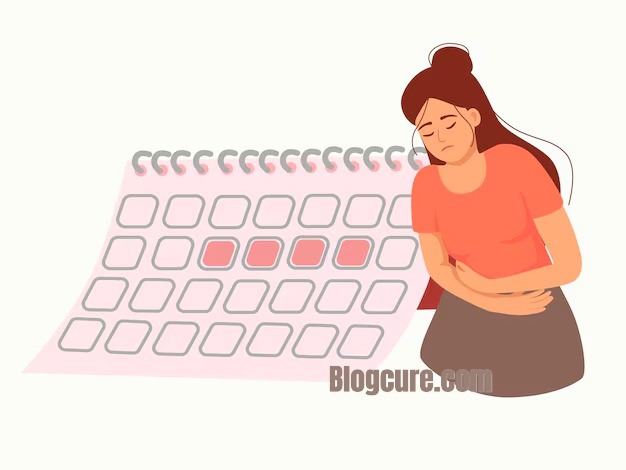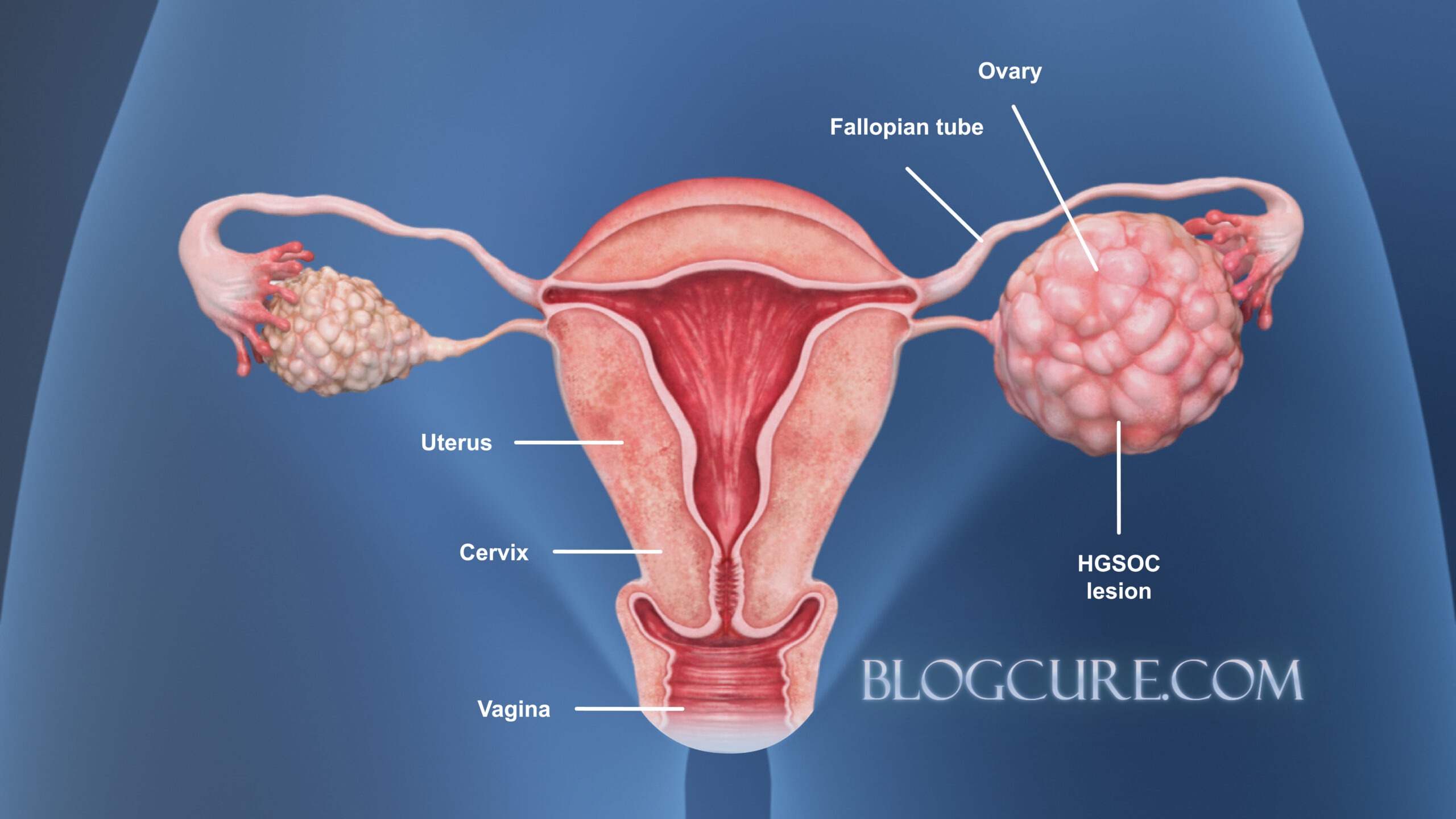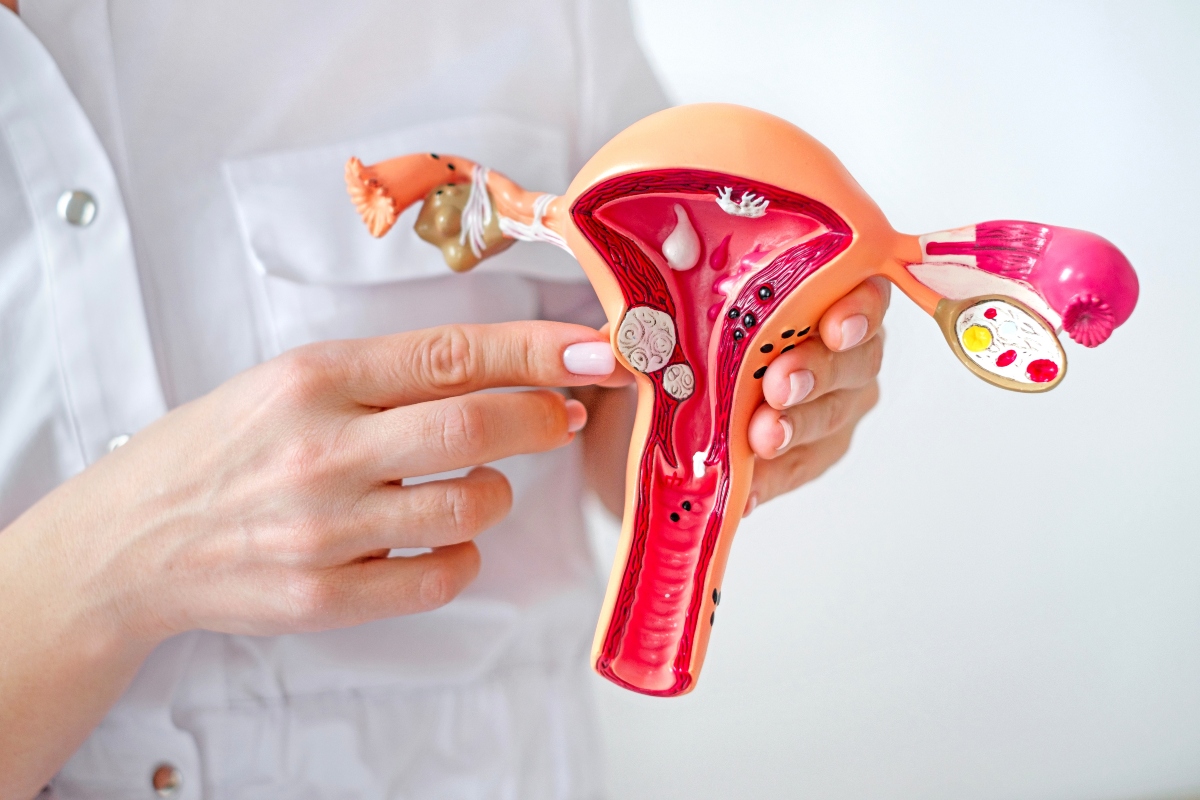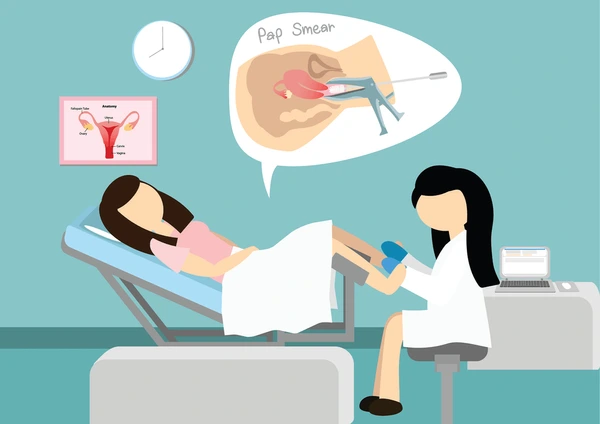
🩺 Pap Smear Test: A Complete Patient Guide for Cervical Health, HPV Detection, and Cancer Prevention
Meta Description:
Learn everything about the Pap smear test — what it is, how it’s performed, when to take it, and what results mean. Discover how this simple test helps prevent cervical cancer, detect HPV infections, and safeguard women’s health.
🌸 What Is a Pap Smear Test?
A Pap smear test (also called a Pap test or cervical smear) is a simple, quick, and highly effective screening procedure used to examine cells from the cervix — the lower part of the uterus.
During the test, a small sample of cells is collected and analyzed under a microscope to detect abnormal cell changes, HPV infections, or precancerous lesions.
💡 Purpose: To detect cervical cell changes before they turn into cancer, allowing for early treatment and prevention.
🎯 Why Is the Pap Test Important?
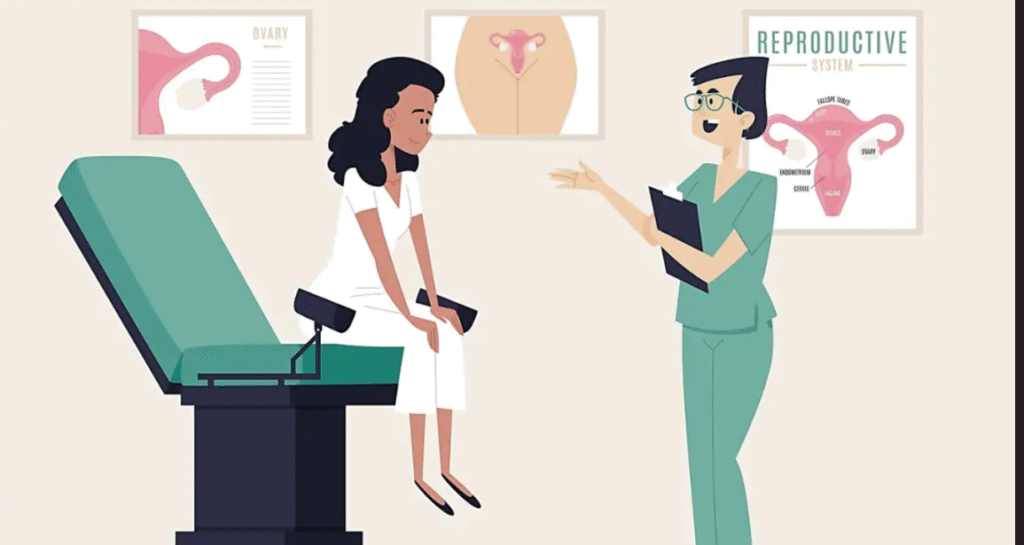
The Pap test is one of the most important screening tools in women’s health.
It helps detect early changes in cervical cells that could develop into cervical cancer — often years before symptoms appear.
| 🌿 Condition Detected | 🧬 Description |
|---|---|
| Cervical Cancer | Detects abnormal cells that may become cancerous if untreated. |
| HPV Infections | Identifies human papillomavirus, the main cause of cervical cancer. |
| Cervical Dysplasia | Finds precancerous cell changes caused by HPV. |
| Vaginal or Cervical Infections | Detects inflammation or infections such as bacterial vaginosis, trichomoniasis, or chlamydia. |
🌼 Fact: Widespread use of Pap tests has reduced cervical cancer deaths by over 70% in developed countries.
🧫 How Is the Pap Smear Test Performed?
The procedure is quick, painless, and usually takes only a few minutes.
- You’ll lie on the examination table, and a speculum is gently inserted into the vagina.
- The doctor collects cervical cells using a soft brush or spatula.
- The sample is preserved in a liquid solution and sent to a laboratory.
- A pathologist examines the cells under a microscope for any abnormalities.
🩷 Most women feel only mild discomfort — no anesthesia or recovery time is needed.
📅 When and How Often Should You Get a Pap Smear?
Pap testing frequency depends on your age, health history, and risk factors.
| 👩 Age Group | ⏱️ Recommended Frequency | 🧪 Additional Tests |
|---|---|---|
| Under 21 | Not recommended | – |
| 21–29 years | Every 3 years | Pap test only |
| 30–65 years | Every 5 years with HPV co-testing, or every 3 years with Pap test alone | HPV test optional |
| 65+ years | May discontinue if previous tests were normal | – |
🕊️ Tip: Even if you’ve received the HPV vaccine, regular Pap screening remains essential.
⚠️ Before the Test: Preparation Tips
Follow these guidelines for accurate results:
✅ Avoid sexual intercourse for 24 hours before the test.
✅ Do not use vaginal creams, sprays, or douches for at least 48–72 hours.
✅ Schedule the test 10–20 days after your period starts (not during menstruation).
✅ Inform your doctor if you’re pregnant or using hormonal medication.
🌸 Clean, undisturbed cervical cells give the most reliable results.
🧠 Understanding Your Results
Pap test results are usually available within 1–2 weeks.
They are interpreted using systems such as Papanicolaou or Bethesda Classification.
| 🧾 Result Category | 💬 Meaning |
|---|---|
| Normal (Class I) | No abnormal or atypical cells detected. |
| Benign Changes (Class II) | Mild inflammation or infection; not cancer. |
| Atypical Cells (ASC-US) | Unclear changes; may require repeat testing or HPV check. |
| Low-Grade Lesion (LSIL / CIN 1) | Early precancerous changes, often HPV-related. |
| High-Grade Lesion (HSIL / CIN 2-3) | Serious cell abnormalities; may progress to cancer if untreated. |
| Cancerous (Class V) | Malignant cells detected — further evaluation needed. |
🧬 Don’t panic if your result is “abnormal.” It doesn’t mean cancer — it means closer evaluation is required.
🤰 Pap Smear During Pregnancy
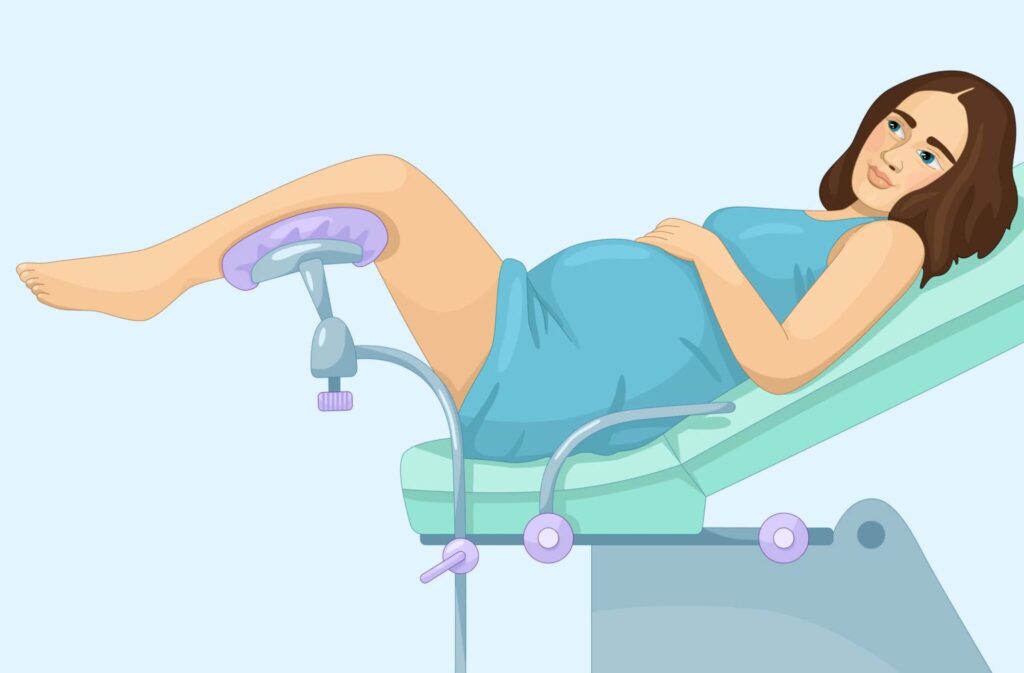
Yes — Pap smears are safe during pregnancy.
In fact, many doctors include them in early prenatal checkups to ensure cervical health.
💡 The test does not harm the baby or affect the pregnancy.
🚺 Who Is at Higher Risk for Cervical Cancer?
Certain factors increase the risk of abnormal Pap results:
- 🚬 Smoking
- 💞 Multiple sexual partners
- 🧬 HPV infection
- 💊 Long-term birth control pill use
- 🤒 Weakened immune system (e.g., HIV, transplant patients)
👩⚕️ If you fall into a high-risk category, your doctor may recommend annual screening.
🧩 Common Misconceptions About Pap Smears
| ❌ Myth | ✅ Fact |
|---|---|
| “I don’t need a Pap test if I had the HPV vaccine.” | You still need it. The vaccine doesn’t protect against all HPV types. |
| “Pap tests are painful.” | Most women feel mild pressure, not pain. |
| “I can skip tests if I feel healthy.” | Cervical changes often cause no symptoms until advanced. |
| “Only sexually active women need the test.” | Even virgins can have cervical changes, though risk is lower. |
💬 Frequently Asked Questions (FAQ)
1️⃣ How soon will I receive my Pap smear results?
Most results are available within 7–14 days. Some clinics offer digital access via patient portals.
If your result is delayed, it’s not always bad news — labs sometimes recheck slides for accuracy before releasing them.
2️⃣ What happens if my Pap smear result is abnormal?
An “abnormal” Pap result doesn’t mean you have cancer.
It means some cells look unusual, often due to mild inflammation, infection, or HPV.
Your doctor may recommend:
- 🔹 Repeat Pap test in 6–12 months
- 🔹 HPV DNA testing for high-risk strains
- 🔹 Colposcopy, a magnified examination of the cervix
- 🔹 Biopsy if necessary to confirm diagnosis
3️⃣ Can virgins get a Pap smear?
Yes. Pap smears are safe for virgins.
A smaller pediatric speculum can be used to minimize discomfort.
Even if you’ve never been sexually active, it’s still important to discuss cervical health with your doctor.
4️⃣ Does a Pap smear test hurt?
Most patients describe it as slightly uncomfortable, not painful.
You may feel mild pressure when the speculum is inserted or when cells are collected.
Deep breathing helps you relax and reduces discomfort.
5️⃣ How often should I get a Pap smear?
- Ages 21–29: Every 3 years
- Ages 30–65: Every 3 years (Pap only) or every 5 years (with HPV test)
- After 65: You may stop if you’ve had three consecutive normal results and no risk factors.
🩷 If you’ve had HPV, abnormal results, or a weakened immune system — yearly screening is recommended.
6️⃣ Can I have a Pap test during my period?
No. It’s best to wait 3–5 days after your period ends, as menstrual blood can obscure results.
If you have spotting or irregular bleeding, consult your doctor before scheduling.
7️⃣ Is it safe to have a Pap smear during pregnancy?
Yes — completely safe.
Pap smears during pregnancy help detect infections or precancerous changes that could affect both mother and baby.
Doctors usually perform them in the first trimester.
8️⃣ What can affect Pap test results?
For the most accurate results:
- Avoid sexual intercourse 24 hours before the test.
- Don’t use vaginal creams, sprays, or douches 2–3 days before.
- Inform your doctor about recent antibiotics, birth control, or pregnancy.
These can alter the natural cells and cause false-negative or false-positive results.
9️⃣ Do I need a Pap smear if I got the HPV vaccine?
Yes. The HPV vaccine protects against most — but not all — high-risk HPV types.
Regular screening remains necessary to detect rare strains and early cell changes.
🔟 Can Pap smears detect other infections or STDs?
Pap smears can show inflammation or infection signs, but not all STDs.
For chlamydia, gonorrhea, or herpes, your doctor may perform specific swab or blood tests.
11️⃣ What are ASC-US, LSIL, and HSIL in Pap results?
These terms describe abnormal cell changes:
- ASC-US: Atypical cells of uncertain significance (often mild, usually resolves).
- LSIL: Low-grade lesion (often HPV-related, may return to normal).
- HSIL: High-grade lesion (requires treatment or close monitoring).
Only a biopsy can confirm if these are precancerous or cancerous.
12️⃣ Can hormonal changes or menopause affect my Pap test?
Yes. After menopause, estrogen levels drop, and the cervix becomes thinner.
This can cause atrophic changes, which might look abnormal under a microscope.
Your doctor may recommend estrogen cream before repeating the test.
13️⃣ What should I avoid after a Pap test?
You can return to normal activities right away.
However, avoid for 24 hours:
- 🩸 Sexual intercourse
- 💊 Vaginal creams or tampons
- 🚿 Douching
Slight spotting is normal and usually goes away within a day.
14️⃣ Can stress or poor immunity cause abnormal Pap results?
Yes. A weakened immune system — due to stress, chronic illness, or medication — can reduce your body’s ability to clear HPV infections.
Maintaining a healthy lifestyle, adequate sleep, and nutrition supports cervical health.
15️⃣ How accurate is the Pap smear test?
Pap smears detect around 75–80% of cervical abnormalities.
That’s why regular testing is key — repeated screenings greatly reduce missed cases.
16️⃣ What’s the difference between a Pap smear and an HPV test?
- Pap smear: Looks at cell changes on the cervix.
- HPV test: Detects the presence of high-risk HPV strains that cause those changes.
When combined, these two tests provide the most accurate early detection strategy.
17️⃣ Do I need a Pap test after hysterectomy?
If your cervix was removed for non-cancerous reasons, you may not need future Pap smears.
However, if the cervix remains or you had precancerous lesions, continue regular screening.
18️⃣ What lifestyle habits help prevent cervical cancer?
- 🧘♀️ Quit smoking
- 💉 Get the HPV vaccine
- 🥗 Eat antioxidant-rich foods (fruits, vegetables)
- ❤️ Practice safe sex
- 🩺 Attend regular Pap and HPV screenings
Prevention + early detection = almost 100% curable cervical cancer.
19️⃣ What if my doctor says my sample was “unsatisfactory”?
It means not enough cells were collected or the sample was obscured by mucus or blood.
You’ll need a repeat test in a few weeks — this is common and not a cause for worry.
20️⃣ How should I mentally prepare for my first Pap smear?
Many women feel nervous before their first test — that’s completely normal.
Wear comfortable clothes, schedule it when relaxed, and communicate openly with your provider.
Remember: It’s a 5-minute test that could save your life. 💖


